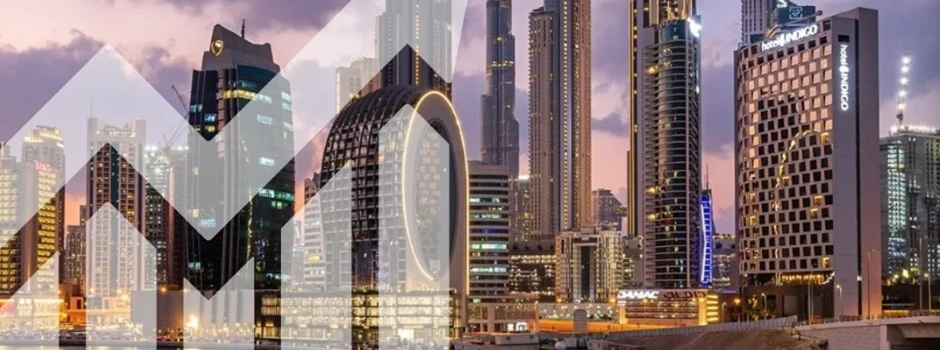Renting vs. Buying in Dubai Real Estate: Deciding What’s Best for You
Wednesday, 24 July 2024
The real estate market in Dubai offers a plethora of options for buyers and renters alike. It’s important to know the advantages and disadvantages of renting versus owning, whether you’re a local looking to make a long-term investment or an expat looking for temporary housing. We’ll explore the most important things to think about in this guide to help you navigate Dubai’s real estate market.
Table of Contents
- Buying in Dubai
- Renting in Dubai
- Important Things to Think About in Dubai Real Estate
- Frequently asked questions
Buying in Dubai
Building Equity
Acquiring real estate in Dubai allows you to gradually accumulate equity. Owning a house can be a profitable investment because of the steady development seen in the Dubai real estate market. Rather than only being used to pay living expenses, monthly mortgage payments help a homeowner acquire an asset.
Stability and Personalization
Stability and the flexibility to customize your living area are two benefits of ownership. Without the landlord’s consent, you are free to remodel, furnish, and make other changes to your property to better suit your requirements and preferences.
Long-Term Financial Benefits
Despite the higher upfront costs associated with purchasing, such as the down payment, closing charges, and mortgage payments, there may be substantial long-term financial advantages. Real estate in Dubai has h
Renting in Dubai

Convenience and Flexibility
Renting in Dubai is ideal for people who aren’t ready to commit to long-term investments or who might move within a few years because it gives unmatched flexibility. Dubai’s rental market is broad, offering a range of accommodations to suit different tastes and lifestyles, from opulent high-rise flats to roomy villas.
Lower Initial Costs
The less initial cost of renting is a big benefit. The security deposit and advance rent payments required of renters are usually much less than the down payment and other expenses related to purchasing a home. This increases the accessibility of renting for many.
Responsibilities and Maintenance
In Dubai, tenants have the advantage of not having to handle all upkeep and repairs themselves. Major repairs are typically handled by landlords, which makes renting a hassle-free choice. Tenants can now enjoy their houses without worrying about unforeseen upkeep costs.
Important Things to Think About in Dubai Real Estate

Length of Stay
If you plan to stay in Dubai for a shorter period of time than five years, renting can be a better choice. Purchasing a home can offer a sense of stability and financial advantages to individuals who intend to stay longer.
Market Conditions
The real estate market in Dubai is very active. Purchasing a house can be a profitable venture when values are rising. On the other hand, renting might provide greater protection and flexibility in a market that is volatile. To grasp the present situation, stay up to date on market trends and speak with Dubai real estate professionals.
Financial Situation
Examine your capacity to obtain a mortgage and your level of financial stability. Purchasing involves a sizable down payment as well as continuous expenses for upkeep, services, and mortgage payments. Make sure you have a solid credit history and a steady source of income before making a purchase.
Lifestyle Preferences
Think about your tastes and way of life. Renting can be a better option if you like to change up your living space periodically or if you value the ease of managed properties. On the other hand, buying is a better option if you want stability and the flexibility to make changes to your house.
Frequently Asked Questions (FAQs)
What are the main benefits of renting a property in Dubai?
Renting a property in Dubai offers flexibility and lower initial costs compared to buying. It allows you to avoid the significant upfront expenses associated with purchasing, such as down payments and transaction fees. Renting also means less responsibility for maintenance and repairs, as these are typically managed by the landlord. This option is ideal for those who may relocate within a few years or prefer not to commit long-term.
What are the advantages of buying a property in Dubai?
Buying a property in Dubai allows you to build equity over time and potentially benefit from property value appreciation. Ownership provides stability and the freedom to personalize your home, such as renovating or decorating without landlord approval. While the initial costs are higher, including down payments and transaction fees, the long-term financial benefits can be substantial, making it a good investment for those planning to stay for an extended period.
How does the length of stay influence the decision to rent or buy?
If you plan to stay in Dubai for less than five years, renting is generally more practical. Renting offers flexibility and lower upfront costs, which is advantageous if you’re not ready for a long-term commitment. For those intending to stay longer, buying may be more beneficial as it provides a sense of permanence and the potential for financial gains through property appreciation.
What should I consider regarding Dubai’s real estate market conditions when deciding to rent or buy?
Dubai’s real estate market is dynamic, with fluctuating prices and trends. In a rising market, buying can be a profitable investment. However, if the market is unstable, renting may offer more security and flexibility. Stay updated on market conditions and consult with real estate experts to make an informed decision based on current trends.
How do financial factors affect the decision between renting and buying?
Financial stability is crucial when deciding to rent or buy. Renting requires a lower initial outlay, including a security deposit and advance rent payments. In contrast, buying involves significant upfront costs, such as a down payment, transaction fees, and ongoing expenses like maintenance and mortgage repayments. Evaluate your financial situation, including income stability and credit history, to determine which option aligns with your budget and long-term financial goals.





